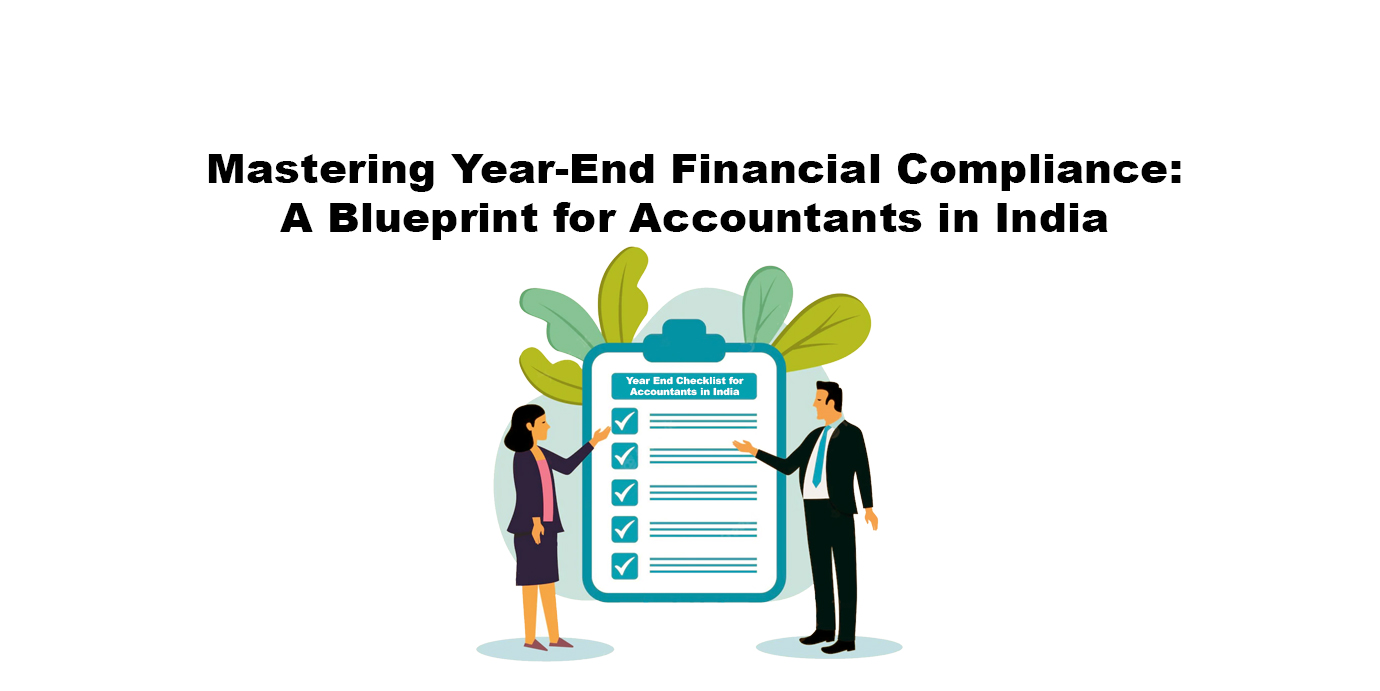As the financial year-end approaches, accountants in India play a crucial role in ensuring that corporate companies adhere to essential checks and balances for a smooth transition into the new financial year. With March 31st marking the end of the fiscal year and April 1st signaling the beginning of a new one, meticulous attention to detail is paramount to maintain financial integrity and compliance. Let’s delve into key considerations for accountants in India during this critical period.
Year End Closing Entries:
During year-end closing, a crucial responsibility entails making essential closing entries to conclude the year’s accounts. Accountants are tasked with recording requisite year-end accruals such as expenses, depreciation, rent equalization, provisions for gratuity & leave encashment, and processing prepayment entries, among other necessary adjustments.
Inventory Valuation:
Conduct a thorough inventory valuation, reconciling physical inventory with records. Make adjustments for obsolete or damaged inventory and ensure accurate valuation methods are applied.
Fixed Asset Verification:
Physically verify fixed assets to confirm their existence and condition. Record any additions, disposals, or impairments accurately, maintaining an updated fixed asset register.
Provision for Write Offs and Write Backs:
Review accounts receivable and payables, establishing provisions for write offs and write backs according to the company’s credit policy and past payment history. Ensure sufficient provisions are allocated to accurately portray the company’s financial position.
Depreciation and Amortization:
Calculate and record depreciation on fixed assets and amortization of intangible assets in accordance with accounting standards. Maintain consistency in depreciation methods and useful lives.
Financial Statements Preparation:
Accurate preparation of financial statements is fundamental. Ensure compliance with Indian Accounting Standards (Ind AS) and regulatory requirements under the Companies Act, 2013. Thoroughly review balance sheets, income statements, and cash flow statements to reflect the company’s accurate financial position.
Audit Compliance:
Coordinate with internal or external auditors to facilitate the audit process. Provide them with comprehensive financial information and ensure adherence to auditing standards. Address any audit queries promptly to expedite the audit completion.
Tax Compliance:
Complete all tax filings and payments, including TDS, income tax and goods and services tax (GST), before the deadline. Stay updated with changes in tax regulations and ensure timely submission of tax returns to avoid penalties or fines.
Budget Review:
Compare actual financial performance against the budgeted figures. Analyze variances and identify areas for improvement or corrective action. Use insights gained to enhance future budgeting processes.
Financial Reporting:
In accordance with the Companies Act, ensure the preparation of Financial Statements, encompassing comprehensive reports tailored for management, shareholders, and regulatory bodies. These statements should offer detailed insights into the company’s financial performance, its financial position, and cash flow dynamics. This information serves to empower stakeholders with the necessary data for informed decision-making processes.
Internal Controls Review (IFC):
Update the Risk and Control’s Matrix (RCMs), wherever applicable, and assess the effectiveness of internal controls over financial reporting. Identify any weaknesses or deficiencies and implement remedial actions to strengthen controls and mitigate risks.
Forecasting and Planning:
Collaborate with management in financial forecasting and budgeting for the upcoming year. Provide strategic insights and recommendations based on past performance and future projections.
Compliance with Accounting Standards:
Stay abreast of changes in accounting standards issued by regulatory bodies such as the Institute of Chartered Accountants of India (ICAI). Ensure compliance with the latest accounting requirements to maintain financial transparency and credibility.
In conclusion, it is imperative for accountants in India to adhere to these checks and balances to facilitate a smooth transition from one financial year to the next. Through meticulous adherence to these guidelines, accountants can uphold financial integrity, compliance, and transparency, thereby fostering the overall success and sustainability of corporate companies in India.




